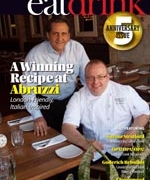Dining Out With Dictators
Kitchen bookshelves have never seen a cookbook like this before. No Julia Child or Bobby Flay in sight, but watch out for Fidel Castro and Kim Il Sung alongside recipes of their respective countries. Those looking to keep political conversation alive over dinnertime, Cuisines of the Axis of Evil and Other Irritating States is the book for you. Chris Fair, a military and political analyst, knows that humans crave more than food alone and she dedicates her book “to everyone who is hungry for justice, peace, and security” by bringing international relations and world politics to the dinner table in an interesting cross section of ideas; with plenty of recipes, it is shelved in the cooking section of a bookstore, but there are equal parts foreign policy, dinner party etiquette, and evil dictator biography.
Fair feels this is the right kind of travel cookbook for our times, because 80 percent of American citizens do not own passports and many cannot find Afghanistan or Iraq on a map. Americans may rail against the evils of Iran and North Korea, but they will never know firsthand what these countries offer to world culture. Religions, political views, and social customs differ across international boundaries, but food is the most fundamental thing that humans share with friend or foe. The book is divided into ten parts: the first nine chapters deal with a particular country which has negatively impacted the United States or seems to threaten world democracy – North Korea, Iran, Iraq, Israel, India, Pakistan, Cuba, Burma, and China. The intent of each chapter is to give enough fodder – both intellectual topics and a full-course menu of recipes, including desserts and beverages – to host a dinner party that represents each country. In the tenth chapter, Fair looks back at the U.S.A. itself and, even with varied cuisines from its immigrant population, the author presents a traditional menu from her stomping grounds in the American heartland.
If you fear the political analysis will get too deep, take heart that Fair always slips back into food mode by the end of each chapter with recipes and cooking tips. And it is a funny book, too; the cartoony cover indicates that, even though it is a serious topic, don’t take it too seriously. Background information about the race for nuclear weapons between Israel, India, and Pakistan is good for dinner party chatter, but it is the advice for working in the kitchen that seems more practical – making nan bread, both from Indian and Pakistani menus, is best cooked in a traditional tandoori, but home-cooked versions can come pretty close with a pizza stone in a conventional oven. The cultural tips that Fair offers are also interesting. For instance, when drinking tea with Iranians, Fair notices they don’t put sugar in the tea, but rather clench a sugar cube between their teeth and sift the tea through it.
The book may take a leap of unusual proportions by mixing discussions about Ronald Reagan’s Iran-Contra Affair alongside the Iranian style of mixing meat with fruit as in the chicken and pomegranate dish of Khoresh-e-Fesanjan. (Who knew Iranian cuisine was worthy of inclusion in an international cookbook?) But it works in a very entertaining and educational way. There may be countries in the world with war-torn histories, duplicitous backgrounds, and downright-evil leaders, but they also have unique food and culture that are far different than our own. For those of us looking for answers to political problems, the dinner party may be just the venue to do it comfortably. Fair writes, “Sitting around the table eating and – when not prohibited by law or religious beliefs – drinking, everyone gets a free pass at speaking their mind.”











